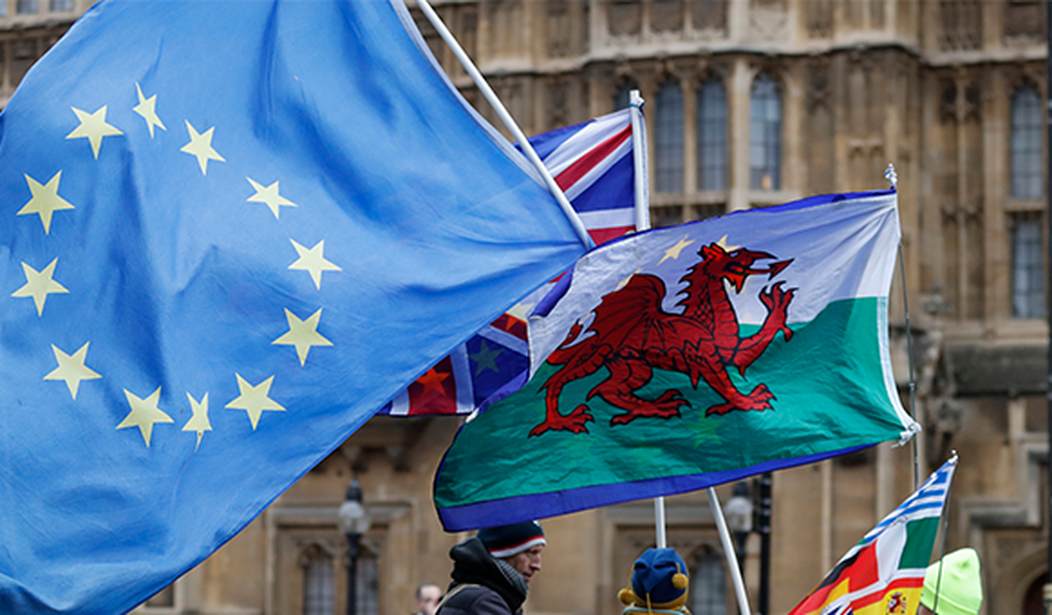It’s not often that we celebrate anniversaries of things that didn’t happen. We generally reserve anniversaries for accomplishments or commemorating losing someone, so recognizing the anniversary of something that didn’t take place seems jarring.
Europeans may not realize the bullet they dodged nearly 20 years ago this month, but it’s worth remembering how France and the Netherlands shot down a European Union (EU) constitution that would’ve given the EU tyrannical powers over the continent.
“In an anniversary precisely nobody in Brussels is marking, the theory of more-integration-or-bust got a nasty puncture 20 years ago this month,” wrote Charlemagne at The Economist earlier this month. “A ‘constitutional treaty’ dreamt up as the next big step in EU integration was voted down by French voters on May 29th 2005, by a 55-45% margin. On June 1st Dutch voters rejected it by an even wider one.”
It's fascinating that the EU bureaucrats thought that euphemizing a constitution as a “constitutional treaty” would make it more palatable to EU countries. This constitution would invest infinitely more power in the EU Parliament and give the continent an official flag, an anthem, a foreign minister, and even a special holiday to honor the enshrinement of the EU as the most sovereign power in Europe.
Dripping with nationalistic symbolism, the constitution — sorry, “constitutional treaty” — was the brainchild of Valéry Giscard d’Estaing, whom Charlemagne called “haughty even by the standards of former French presidents.” (That’s a sick burn if there ever was one.) The treaty echoed the U.S. Constitution and likened its potential passing to the birth of a centralized Europe that would be as influential and powerful as the U.S.
Recommended: The Left's 'Inevitability' Has Proven Hollow
Clocking in at 450 pages, the proposed constitution was overloaded with high-minded rhetorical flourishes that came across as pretentious. The Economist said that the language was so confusing that the EU should scrap all of it, while the Daily Mail called it a “blueprint for tyranny.” Yet so many EU bureaucrats thought it fell short; some even wanted the treaty to call for taxation powers for the EU.
Nevertheless, the EU got most of what it wanted. Much of what was in the proposed constitution found its way into EU policy through other measures. The only things missing were the nationalistic trappings and total EU sovereignty.
Charlemagne said that a populist, anti-elite mindset helped kill the constitutional treaty: “The urban and upper classes had backed the EU in the French and Dutch referendums. Rural and working-class types had not. Populists decried the adoption of most of the constitution’s clauses by the back door; Marine Le Pen in France dubbed it ‘the worst betrayal since the second world war.’ Brussels has never shaken off the idea that it is a project of the elites.”
National identity may have played a factor in the treaty’s failure as well. Albert Mohler pointed out in his podcast on Wednesday that the proposed constitution “would establish a certain kind of federalism above the nation-states and would create a people, and, uh, it would be this common written constitution that would bind Europeans together, and it would be a we, and the we would be not so much the French people, the German people, the Belgians, the, you know, you just go down the list, but rather, we Europeans.”
“But here's an interesting thing,” Mohler continued. “It turns out that the people who live in Europe overwhelmingly do not see themselves first as Europeans. They see themselves first as Portuguese or Spaniards or Italians or Germans.”
As much as Europeans want certain features that come with EU membership, they still view themselves through their national identity. As Charlemagne put it, “the EU is still a distant beast to citizens.”
This is why it’s worth remembering what didn’t happen 20 years ago this month. The elites in Europe lost that power grab, but are today’s Europeans strong enough to resist if the EU tried again?









